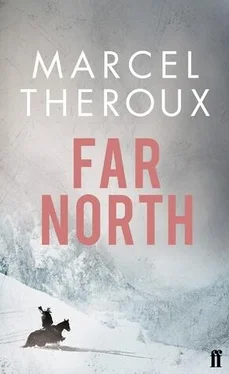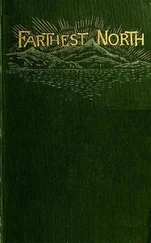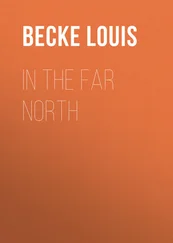A woman’s low voice called through the screen door for Natasha to come back inside now. Natasha took the glass and the ice-tray and skipped back into the house. ‘Bye, Natasha,’ Abelman called out in his sickly buttery voice.
When the door slapped shut for the last time, I turned to him. ‘Where do they get power for a refrigerator?’ I asked. But he was back to fooling the cat again. There was no more butter in his voice and he threw my words back at me: ‘Isn’t it rude to be always asking questions?’
*
The next time I came back, I saw they’d put a bench in the garden and hung a swing. Natasha came out to me that time carrying a bowl with something in it.
‘I saved this for you,’ she said.
It was canned peaches, four slices of them. I grabbed a piece. The flesh wobbled like something living and naked.
She watched me eat it, the way you would if you’d brought home a wounded bird to feed and pet.
It was as gold as sunset and sweeter than honey. ‘Thank you,’ I said, and I wiped my fingers clean on my pants-leg.
She giggled delightedly and ran back into the house. After that, she was always bringing me little things.
Another time when I was working in the heat, Abelman dropped off to sleep and began to snore. The first thing that went through my head was the thought of escape. I let my rake drop and walked towards the rearouse to see if the road in front was clear both ways. I moved with that all-purpose prison shuffle, nothing urgent about it, but already my mind was haring off, figuring out if it would be possible to break off my chains, maybe steal a knife, hustle together enough food to start the long trek north, until I came level with the back of the house and I heard the tinkle of a child’s laughter.
I followed the sound to the window and peered in: Natasha was sitting at the kitchen table with her hair wet and a sheet over her shoulders while her mother moved around her with a pair of scissors, snipping off a little here, a little there — tiny tufts like powder which she let fall to the floor. The mother had her back to me and I couldn’t hear what they were saying, but every now and again it seemed like the two of them shared a joke, and one or other of them fell about laughing.
There was nothing special about the place. I mean I must have been in fifty different kitchens in my life and all of them looked pretty much like that, but something about the scene just glued me there, until the next thing I knew, Abelman was pressing his piece in the small of my back and telling me to get back to work.
*
The next few times that Natasha came out to me, her mother hung back in the kitchen, just sticking her head round the door to call her daughter back in so I could get down to some work. But towards the end of summer, in late August, when most of the flowers had blown, she came out to visit with me in the garden.
She was a tall, lean, handsome woman, a little younger than me.
‘Natasha and I are very grateful for the work you’ve done here,’ she said. ‘You’ve made this place beautiful.’
I never count myself inferior to anyone, but something in me went squirming and servile while I was with her. I was conscious of my smell, and my filthy torn clothes, and the earth ground into my hands and fingernails — and there she was, all clean, and sweeter than a spray of apple-blossom.
‘Well, it’s been its own reward,’ I said.
We were both stuck there for a while, her with a million questions that she didn’t know how to ask, and me desperate to get back to my pruning, just so long as I didn’t have to stand there, facing the ghost of what might have been, and mired in the shame of what I’d become.
I stared at the ground and watched her scrunching the long brown toes of her bare feet in the grass.
‘Well, thank you again,’ she said finally, and went inside.
*
At reveille the next morning, I refused to move and stayed put in bed. Men had been flogged for less, but I told the guards it was my monthly time and for some reason this made them leave me be.
After lunch I went to the byre, and when Abelman came for me, I told him I didn’t care what they did to me, but I wasn’t doing any more gardening. He tried to talk me round, but I wasn’t having any of it, so he went to get a couple more guards and they frogmarched me to a punishment cell and tossed me inside. I beat on the door for a while, and then I fell asleep. I didn’t know what crainess had got into me.
It happened now and again that a kind of madness descended on a man and they would lock him up and beat him till his head went straight again. I was almost looking forward to their coming in, but when the door finally opened, who should walk in but Boathwaite himself.
Boathwaite signalled to the guard to help me to my feet and he told me to follow him. He had a wide-kneed, horseman’s swagger.
I went with him to a two-storey building on the other side of the parade ground. Most of its windows still had their glass in them. ‘This used to be a military base,’ he said. ‘I expect you knew that.’
His office was up on the second floor. It had a big desk at one end. A map hung on the wall behind his chair. I couldn’t take my eyes off it. It was an old one, of the sort we’d had in school, with the western edge of Alaska in the top right corner, Kamchatka and the Kuriles below it, and the great mass of Asia running west to the Urals, and Europe beyond. The face of the world that must have once seemed as fixed and unalterable as the man in the moon himself. I could see the route we’d marched marked in blue ink. I’d guessed we weren’t the first prisoners to make that journey. Elsewhere on the map, there were other inked corrections, place-names in the Far North and symbols which were too far away for me to read.
The walls on either side had red circassian rugs hanging off them and a bearskin. On his desk, Boathwaite had a kinzhal, a Cossack knife.
He offered me a smoke, and when I said no, he lit one himself. The smell of it was cedary, like pipe smoke. I noticed he had a brown stain on his finger from smoking so much of it.
‘My wife is very happy with the way the garden turned out,’ he said. ‘She’ll be sorry if you don’t want to carry on your work.’
‘That’s too bad,’ I said, ‘because I’ve lost the stomach for it.’
*
So it was back to regular work with the others. I missed the garden. Sometimes, at night, while the place was settling down to its louse-ridden sleep, I’d picture it in my mind, the plants the way I’d last seen them, the hard yellow quinces that I’d mulched for compost, the damp cool of the lawn after rain. The other prisoners would have thought I was mad for giving it up. But I was happy never to be going back.
Facing that woman, I had felt like a beggar, holding open the door of a restaurant for pennies and thank-yous. I hated the thought of them in the ease and calm of the garden I’d sweated to build, while I rotted in here, and Ping rotted in the ground, and they crunched ice-cubes, wilfully ignorant of us, living like beetles in this dung heap of a barracks.
Now I began to plan in earnest to escape.
I FIGURED ON breaking out come spring. Over December and January I traded most of my warm clothes with the other prisoners. I waited until weather turned biting cold so I could fetch the best price for them. They paid me in the oddments that passed for currency in that place — smokes, drink and bits of food. The random-seeming bits of trash we used to buy things from one another had a value that couldn’t have been more fixed if they’d had price tags on them. So a foot-cloth was worth two smokes, and a pair of woollen mittens would buy you a bottle of moonshine, and so on.
Читать дальше












